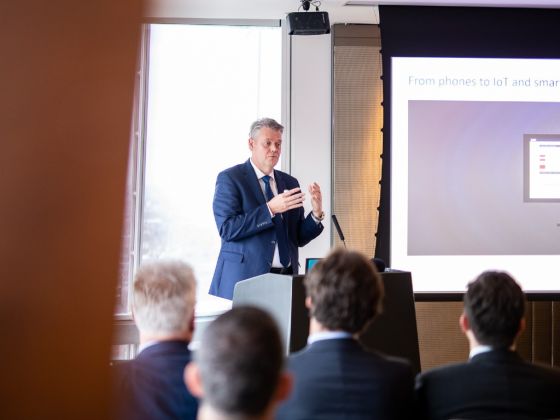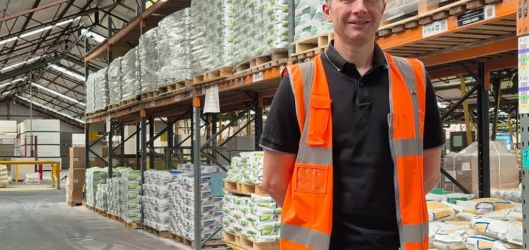
At a celebratory event at the Shard, London, Atlas Copco marked its first century of operations in the UK.
Atlas Copco’s UK office was its first outside its home market of Scandinavia, originally selling diesel engines at the end of World War 1. Today, the UK operation is headquartered in Hemel Hempstead and employs more than 2,500 people at six production centres and multiple sales offices across the country.
Mats Rahmström, Atlas Copco CEO, was among the execs at the event to mark the milestone - and look ahead at how industrial tech may evolve over the next 100 years, digitalisation, electrification and artificial intelligence.
“We are proud of our long history in the UK, and the future looks very bright,” said Alex Bongaerts, UK Holdings Manager at Atlas Copco. “In our opinion, there has never been a better time to be operating in the industrial sector. Digitally enabled technologies are transforming the way we design, build and operate equipment such as compressors. Indeed, Atlas Copco hopes the next 100 years will be as successful as our first century of operations in the UK.”
In addition to the London event, Atlas Copco ran a series of regional events to enable as many employees as possible the opportunity to celebrate the 100-year milestone. Bongaerts added: “We are proud of all our staff and are keen for everyone to celebrate this incredible achievement.”
Megatrends
The Shard celebration saw Atlas Copco discuss how technologies such as the Internet of Things – driven by the application of sensors, software and connectivity – would give industrial organisations much better visibility of their assets, delivering significant advances in areas such as remote monitoring and predictive maintenance.
The use of artificial intelligence, meanwhile, would allow equipment such as compressors to track and make process improvements autonomously as independent cyber-physical systems.
The company also described how connected technologies such as virtual and augmented reality would transform the way that maintenance workers repaired industrial equipment, both in factories and out in the field.
Sustainability
Atlas Copco also used the event to explain how it has embarked on a significant process of electrification, with battery and hybrid products expected to reduce its carbon emissions by 50 per cent by 2030.
Bongaerts explained: “One of the major areas of emphasis going forward will be the continued drive towards sustainability, particularly in terms of the electrification of equipment such as mobile compressors and generators, lighting towers and pumps. Traditionally, much of this type of equipment has been driven by diesel engines, but in urban environments or events such as music festivals, there is a desire for cleaner and quieter performance. That is resulting in the development of a wide range of battery-powered and hybrid products, which deliver reductions in carbon emissions. The future will require all of our products to be designed with a great deal of environmental consideration in mind.”
Milestones
Atlas Copco’s century in the UK has seen a few milestones, including the launch of what it said is the world’s first oil-free, rotary screw, stationary compressor in 1967; the first compressor with integrated variable speed drive in 1994; and the launch of the VSD+ compressor in 2013. The company has also expanded through acquisitions, including the purchase of UK-based vacuum product and abatement Edwards Group in 2014. More recently, Atlas Copco restructured its UK Industrial Technique business, headed up by General Manager James McAllister.



